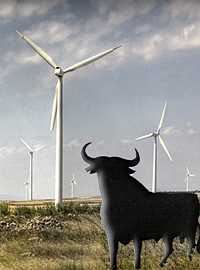| America’s Energy Future: Scarcity or Abundance? |
 |
|
By Troy Senik
Thursday, May 17 2012 |
The American left is uncomfortable with affluence. In the zero-sum world of liberalism, one person’s gain is always perceived to come at another’s expense. So it is that when the conversation turns to the consumption of natural resources, the default assumption of the liberally inclined (particularly among radical environmentalists) is that all of this abundance must eventually yield catastrophe and despair. It is this sense of pending doom that animates the energy views of President Obama, who is fond of pitching alternative energy by telling audiences that the United States has 2 percent of the world’s oil reserves, but consumes 20 percent of global supply – an arrangement he regularly presents as unsustainable. This is a particularly disingenuous piece of political rhetoric, with the fear factor implicit in the statement contingent on deceiving the audience. As Glenn Kessler has noted at the Washington Post’s fact-checking blog, “… in the context of higher gas prices — which is how the president often uses these figures now — it just is not logical to compare consumption to 'proven oil reserves.' This is a lowball figure that does not begin to describe the oil known to be within the U.S. borders.” Even if Obama’s claims were accurate, however, they would be immaterial. Oil is a fungible commodity sold on global markets. The United States has no need to produce the same amount of energy that it consumes as long as the resources it requires are available through international trade (though the need for such trade would be greatly reduced by bringing domestic resources to market). The great irony here is that Obama – the leader of a political party that has taken, over the last decade, to branding itself as the caucus of science, reason and logic – proposes to refashion America’s energy economy on terms that embrace none of those three principles. The supposed panacea of green jobs relies on “innovations” that are not yet economically or technologically viable. Wind power, for instance, can only be generated sporadically (read: when the wind blows) and the cost of transmitting it to regions that need it makes it cost-prohibitive. Solar power, while a laudable idea that may eventually become viable, currently suffers from the fact that it is far more expensive than almost any comparable energy source. Yet in 2011 alone, the federal government spent $16 billion subsidizing renewable energy and energy-efficiency technologies. This money doesn’t merely “help technologies to market”; it creates markets where none would otherwise exist – and does so at taxpayer expense. That way lies grief. As the American Enterprise Institute’s Kenneth P. Green recently noted, “President Obama held up Spain as an example of what America should be doing. Spain invested heavily in wind power and other types of renewable energy. Alas, after studying the Spanish Experience, Professor Gabriel Calzada Álvarez and colleagues at Spain’s Universidad Rey Juan Carlos found if America followed Spain’s example, for every renewable energy job that the U.S. managed to create, the U.S. should expect a loss of at least 2.2 traditional jobs on average.” It would be bad enough if the Obama Administration was merely shoveling money into green boondoggles. But at the same time it’s also working to restrict the supply of the energy resources Americans actually need to fuel the economy. In the wake of 2010’s massive oil spill in the Gulf of Mexico, Obama imposed a moratorium on drilling in the region. When the ban was lifted later that year, however, the Administration took to rarely issuing new permits. Now, for a region where in recent history only about 26 percent of drilling plans were rejected, the number has skyrocketed to 64 percent. Obama has also refused to develop the Keystone XL Pipeline with Canada – which would deliver 700,000 barrels of crude oil to the Gulf of Mexico every day and create more than 20,000 jobs – a move that has drawn criticism even from the likes of Bill Clinton and Obama stalwart Warren Buffett. And the president’s defeated (though still desired) policy of “cap and trade” – limiting the amount of legally permissible carbon emissions – would have cost the American economy $161 billion a year by 2020, according to a study by the Heritage Foundation. By Obama’s own admission, the plan would have caused the price of conventional energy to “necessarily skyrocket.” The great tragedy of all this is that Obama’s obstinance stands athwart what could be one of the greatest energy bonanzas ever known to man. Testifying before the House Science Subcommittee on Energy and Environment last week, the Government Accountability’s Offices Anu Mittal revealed that the amount of recoverable shale oil reserves in the states of Colorado, Utah and Wyoming alone are likely equivalent to all of the oil reserves found in the rest of the world combined. Much of that oil, however, lies on federal lands, which means that it will be up to the federal government to begin the process of harnessing it. Tapping those resources would not only ease Americans’ recurring pain at the pump; it would also be a surefire formula for economic growth. Just ask the citizens of North Dakota, which has the lowest unemployment rate in the country (3 percent) and saw its supply of jobs increase 4.5 percent last year thanks to an energy boomlet. Given the resources available, that future of energy abundance could be the inheritance of the entire nation – but not as long as Barack Obama and his fallacious notions of scarcity carry the day. Whether America willfully rejects the prospect of renewed prosperity will thus be a political decision – and one that will make the stakes of this November’s election even greater. |
Related Articles : |
























